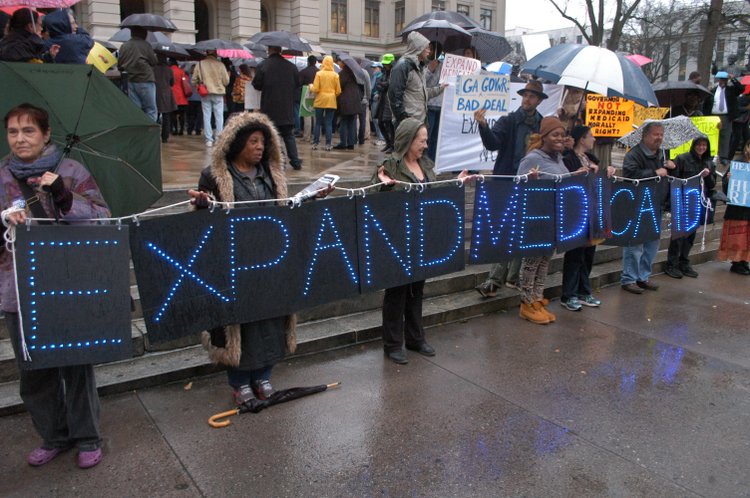By: Patrick Wheat

If you have any connection to Facebook, Twitter or a newspaper, you are probably aware that the implementation of the Affordable Care Act has not gone smoothly. The website, Healthcare.gov, has been riddled with technical issues ranging from lost insurance information to not being able to process applications. Only 106,000 people have signed up for government health care plans at this point, far below the 500,000 the White House had projected would be signed up at this point. Complaints have been made of insurance companies being forced to raise premium rates on insurance plans because of the effect of the ACA. Finally, there have been cases where people have lost their preexisting health insurance plans due to the insurance companies that are mandated to cancel them because they do not meet the strict guidelines of the ACA, such as including “Essential Benefits” such as prescription drug coverage, maternity care or mental health services.
On November 14, President Obama went on record admitting that the rollout had not been handled well and that a fix for Healthcare.gov was just a few weeks away. He further informed the public that if they wanted to remain on their old health care plan, they would be allowed to for an additional year even if that plan did not meet ACA standards. On the other side of Capital Hill, the Republican-controlled House of Representatives passed the “Keep your Health Plan Act” with a 261-157 vote on November 15. This bill is designed to allow insurers to continue offering previously existing plans even if they do not meet ACA requirements. President Obama has already vowed to veto this legislation should it pass the Senate, claiming that it works against the ACA by creating a “shadow market” where substandard plans would be sold and would make the ACA ineffective.
President Obama’s promise to grant a one year extension to employers on the mandate of giving all their employees’ health care and on allowing people the choice to keep their current health care plans for an additional year is, unfortunately, not going to accomplish a great deal. One of the largest current issues with the ACA is that younger people not willing to participate in the program despite the threat of fines and tax increases. A majority of those who have signed up under the ACA at this point are elderly individuals who have preexisting conditions, which have caused the insurance premiums to rise at higher than expected rates. According to the White House, to offset costs two young people need to sign up for every three elderly people. If this ratio is not met it will cause premiums to sky rocket and will further reduce the incentive for young people to sign up for government health care. Unless the government can provide more incentives for young people to sign up, there is fear that the “Death Spiral Scenario” will scenario will set in. This actuarial apocalypse involves insurance companies forced to drive up premiums due to being overburdened with too few healthy individuals to offset sick individuals
On the political landscape, the Affordable Care Act has been a blow to many in the Democratic Party. With the recent struggles of the ACA, many democrats are quietly backing away from public statements on the bill for fear of backlash from their constituents. 39 Democrats in the House of Representatives voted for the “Keep your Health Plan Act” despite President Obama’s insistence that it will not serve as an effective answer to the ACA’s woes. All of these 39 Democrats face serious opposition in their primary elections, causing them to use this vote as a flak jacket to make it to another term in office. Another problem comes in November 2014 when President Obama’s one year extension to employers and to the public regarding keeping their previous health plans expires just in time for the midterm elections. Whatever way you slice it, the ideal of the ACA is fast becoming a political liability for the most vulnerable members of the Democratic Party.
If there is any hope of “fixing” the Affordable Care Act, the solution has to hold weight both economically and politically. From the economic standpoint, the government must find a way to incentivize healthy people to sign up for government health care. If they cannot secure youth involvement in the program the only conclusion will be skyrocketing premiums and the eventual collapse of the ACA. From the political standpoint, the government has to make good on their promise that people will be able to keep their old health plans. This move will help to restore public confidence in both the government and the ACA itself.
The rollout of the Affordable Care Act has had numerous pitfalls that have made it the punch line of many late-night talk shows. If the federal government uses these experiences to improve our healthcare system, what was embarrassing in the short term could be extremely beneficial in the long term.

